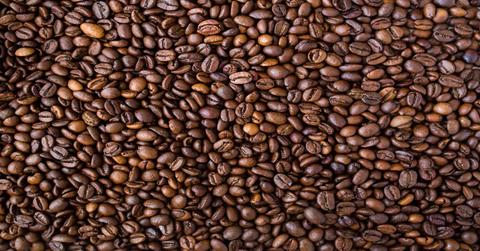8 Sustainable Coffee Providers So You Can Have Your Caffeine Guilt-Free
Choosing sustainable, eco-friendly coffee is an easy way to make one aspect of your daily routine good for you and good for the planet. Embracing organic, fair trade coffee providers helps farmers and sellers stay safe and survive.
Updated May 17 2019, 12:54 p.m. ET
According to USA Today, 83 percent of American adults drink coffee, spending greater than $13 billion a year. With such a lucrative industry, you might think that the producers and farmers who provide coffee beans to the world are, if not wealthy, at least comfortable, but sadly you’d be mistaken.
Since coffee is produced in poor countries and consumed in wealthy countries, the farmers are subject to unstable economic environments. Coffee prices can dip to as low as .50/pound, and the shift to industrialist farming practices has increased the economic burden on small farmers and created the necessity for a farming monoculture in many coffee-producing communities.
Not only do modern coffee practices have a huge economic impact, the ecological impact is also severe. In the 1970s coffee production shifted from primarily shade-grown, to the conventional method of large, open, treeless plots, similar to the large wheat and soybean fields we see in the US.
Robert Rice, a research scientist at the Smithsonian Migratory Birds Center and a co-author on a paper discussing the ecological impact of coffee consumption told the Huffington Post, “We know now from decades of high-input industrial agriculture in the U.S. that by shifting away from traditional practices, you lose an incredible amount of topsoil, you contaminate waterways and you make yourself much more vulnerable to changes in weather.”
There are a few steps you can take as a coffee consumer to lessen the impact of everyone’s favorite luxury, and it starts with checking labels before you buy. Coffees are labeled with certifications if they meet certain farming standards. Knowing these labels can mean the difference between contributing to low-wage, pollution heavy, chemical-laden coffee production and fair wage, truly sustainable farming practices.
The first is "organic." Ensure your coffee has the USDA Certified Organic emblem. The next is "fair trade certified." Fair trade certification either through Fair Trade USA or Fair Trade International lets you know that farmers who produced your coffee were guaranteed a consistent wage: $1.40 for non-organic, $1.70 for organic, plus a $0.20 cent community-development premium for each, according to Smithsonian Magazine.
Others include Rainforest Alliance Certified, UTZ Certified, Bird Friendly Certified, that, while nice to have, don’t necessarily indicate any level of sustainability in farming practices or worker compensation. Now, what coffee brands actually have these certifications, and where can you get them?
The Good Trade released a list of 14 ethical coffee brands, so sourcing an ethical cup of joe is easier than ever! It’s worth noting that this list is for Fair Trade Certified roasters, but almost 90 percent of fair trade coffee is organically produced, so you’ll likely kill two birds with one stone by choosing fair trade.
Cafe Direct
Available online, Cafe Direct is certified fair trade and also reinvests ⅓ of their profits into their farming communities and has made 90 percent of their farmers shareholders.
Equal Exchange
Located in St Paul, Minnesota, Equal Exchange has been worker owned for the last 25 years, paving the way for fair trade coffee roasters. Equal Exchange is available for purchase online.
Grumpy Mule
Located in London, UK, Grumpy Mule only sells beans that are fair trade, rain forest alliance, and organic certified. Their variety of roasts are available online.
Doma
Based in Idaho, Doma is both fair trade and organic, ensuring each cup is an ethical cup. By using more sustainable roasting methods than other roasters, Doma has doubled down on their commitment to ethical and sustainable coffee.
Cafe Mam
Located in Eugene, Oregon this homegrown brand provides coffee that is both fair trade and organic, coming from cooperatives of Mayan farmers.
Kickapoo Coffee
Based in Milwaukee, Wisconsin, this brand works directly with coffee providers for their imports. This means that they are able to remove the in-between connections and ensure that their workers and providers are being paid fairly and working in safe conditions.
Doi Chaang Coffee
Operating out of Vancouver, Canada, Doi Chaang Coffee Co. provides customers with 100 percent organic arabica beans and specialty coffees. They participate in a "Beyond Fair Trade" model, which allows them to offer fair prices to customers and support a unique, intimate relationship with their coffee farmers in Thailand.
Njoga Coffee
Njoga Coffee Inc. is a family-run operation that focuses on sustainable coffee, based here in San Diego. Operating since 2007, they have their own tree nursery in Kenya where they grow and pick the coffee beans themselves. They also work with nonprofits to give back to young girls and women in Africa.
Dean's Beans Coffee
Dean's Beans is a fan-favorite when it comes to sustainable, eco-friendly coffee sources. They provide fair trade, kosher, and organic coffee and are on a mission to support progressive change for coffee producers in Asia, the Americas, and Africa through ecological action, direct trade with providers, and activism.
